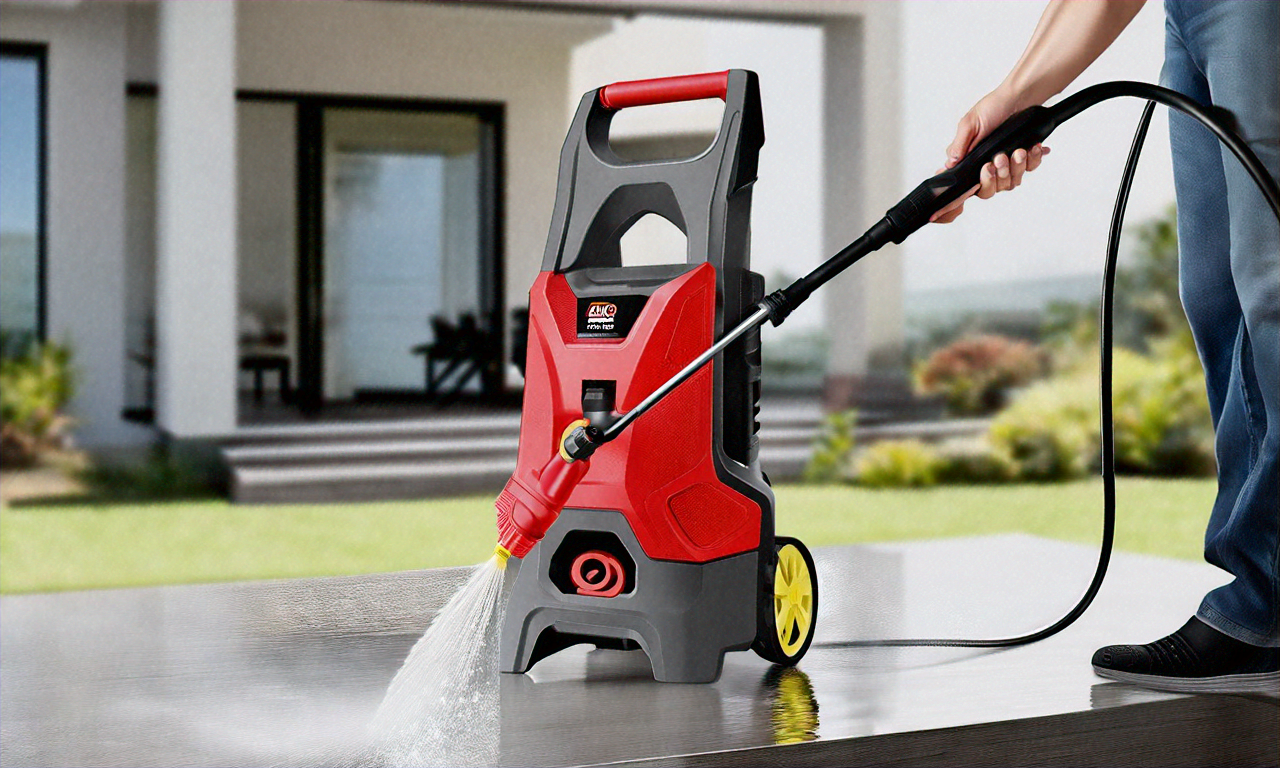Exploring Average Prices for Different Pressure Washers
Understanding the cost of pressure washers can help you make an informed purchasing decision. Whether you need a light-duty electric model for occasional home use or a heavy-duty gas-powered unit for commercial applications, prices vary significantly based on power, features, and brand. This guide breaks down what you can expect to pay across different categories and helps you navigate the market with confidence.

Pressure washers have become essential tools for homeowners and professionals alike, offering efficient cleaning solutions for driveways, decks, vehicles, and siding. The market offers a wide range of options, from budget-friendly electric models to professional-grade gas-powered units. Knowing what to expect in terms of pricing can help you select the right equipment for your specific needs without overspending or compromising on quality.
What Factors Influence Pressure Washer Costs?
Several key factors determine how much you’ll pay for a pressure washer. Power output, measured in PSI (pounds per square inch) and GPM (gallons per minute), directly affects price. Higher PSI and GPM ratings mean more cleaning power but also higher costs. The power source matters too: electric models typically cost less than gas-powered alternatives. Additional features like adjustable nozzles, detergent tanks, hose reels, and warranty coverage also impact the final price. Brand reputation and build quality play significant roles, with established manufacturers often commanding premium prices for their reliability and customer support.
How Much Do Electric Pressure Washers Cost?
Electric pressure washers represent the most affordable entry point into pressure washing. These units are ideal for light to medium-duty tasks around the home, such as cleaning patio furniture, cars, and small decks. Prices for basic electric models start around $80 to $150 for entry-level units with 1,300 to 1,800 PSI. Mid-range electric pressure washers with 2,000 to 2,300 PSI typically cost between $150 and $300. Higher-end electric models with advanced features, better build quality, and PSI ratings up to 3,000 can range from $300 to $500. Electric models are quieter, lighter, and require less maintenance than gas units, making them popular for residential use.
What Should You Expect to Pay for Gas Pressure Washers?
Gas-powered pressure washers deliver superior cleaning power and portability, making them suitable for heavy-duty tasks and professional applications. Entry-level gas models with 2,500 to 3,000 PSI start around $300 to $400. Mid-range gas pressure washers offering 3,000 to 3,500 PSI with quality engines and durable pumps typically cost between $400 and $700. Professional-grade gas units with 3,500 to 4,000+ PSI, commercial-duty engines, and premium components can range from $700 to over $2,000. These higher-priced models are built for frequent use and demanding applications, offering longer lifespans and better performance consistency.
Understanding Pressure Washers Price Guide Categories
The pressure washer market can be divided into distinct price tiers that correspond to different use cases. Budget tier ($80-$200) includes basic electric models suitable for occasional light cleaning tasks. Mid-range tier ($200-$500) encompasses better electric units and entry-level gas models appropriate for regular homeowner use. Premium tier ($500-$1,000) features high-quality gas pressure washers and top-end electric models for serious DIYers and semi-professional applications. Professional tier ($1,000+) includes commercial-grade equipment designed for daily use and demanding environments. Understanding these categories helps you match your budget to your actual needs.
How to Buy Pressure Washers Without Overspending
Making a smart pressure washer purchase requires assessing your actual cleaning needs rather than simply buying the most powerful unit available. Consider how often you’ll use the equipment and what surfaces you’ll be cleaning. For occasional home use, a mid-range electric model often provides the best value. If you need portability or plan to tackle heavy-duty projects regularly, investing in a quality gas model makes sense. Look for units with solid warranties, replaceable parts availability, and positive user reviews. Avoid extremely cheap models that may fail quickly, but also resist the temptation to overspend on features you won’t use. Shopping during seasonal sales or considering refurbished units from reputable sellers can provide significant savings.
Pressure Washers Cost Comparison Across Popular Models
To provide a clearer picture of what the market offers, here’s a comparison of typical pressure washer options across different categories:
| Product Type | Typical Provider | PSI Range | Cost Estimation |
|---|---|---|---|
| Basic Electric | Sun Joe, Greenworks | 1,300-1,800 | $80-$150 |
| Mid-Range Electric | Ryobi, Karcher | 2,000-2,300 | $150-$300 |
| Premium Electric | AR Blue Clean, Simpson | 2,500-3,000 | $300-$500 |
| Entry Gas | PowerShot, Champion | 2,500-3,000 | $300-$450 |
| Mid-Range Gas | Simpson, Generac | 3,000-3,500 | $450-$700 |
| Professional Gas | Honda, DeWalt | 3,500-4,200 | $700-$2,000+ |
Prices, rates, or cost estimates mentioned in this article are based on the latest available information but may change over time. Independent research is advised before making financial decisions.
This comparison reflects typical market pricing and should serve as a general guide. Actual prices may vary based on retailer, location, seasonal promotions, and specific model features. When comparing options, consider the total cost of ownership, including maintenance, replacement parts, and fuel or electricity consumption over time.
Making the Final Decision on Your Pressure Washer Purchase
Choosing the right pressure washer involves balancing your budget, cleaning requirements, and long-term value. A well-chosen pressure washer can provide years of reliable service, making even a higher initial investment worthwhile if it matches your needs. Consider factors beyond just price, including warranty coverage, customer service reputation, and the availability of replacement parts. Reading user reviews and seeking recommendations from others who perform similar cleaning tasks can provide valuable insights. Remember that the cheapest option isn’t always the best value, and the most expensive model may offer features you’ll never use. By understanding the pressure washers guide to pricing and carefully evaluating your specific situation, you can make a confident purchase decision that delivers excellent cleaning performance without unnecessary expense.




